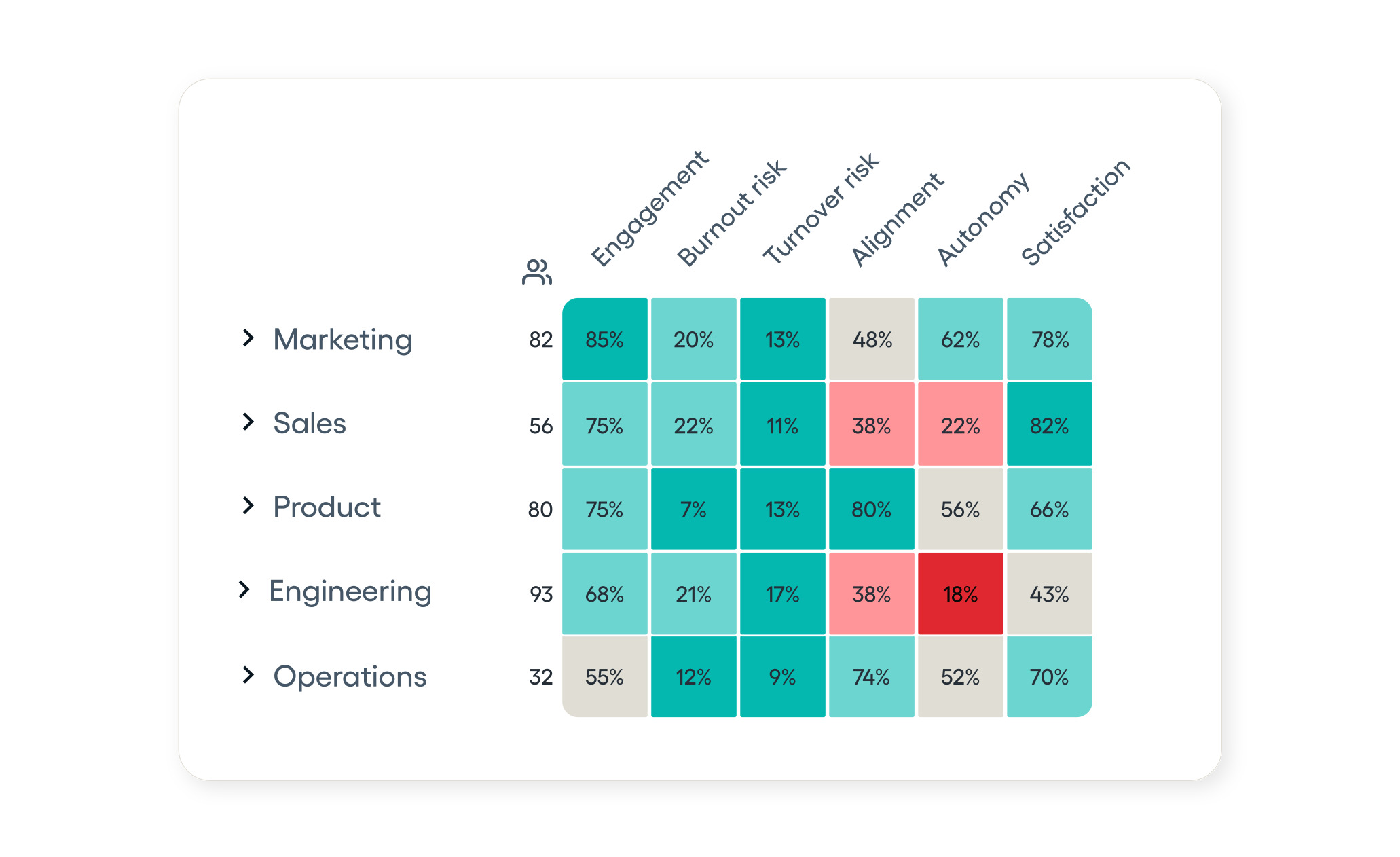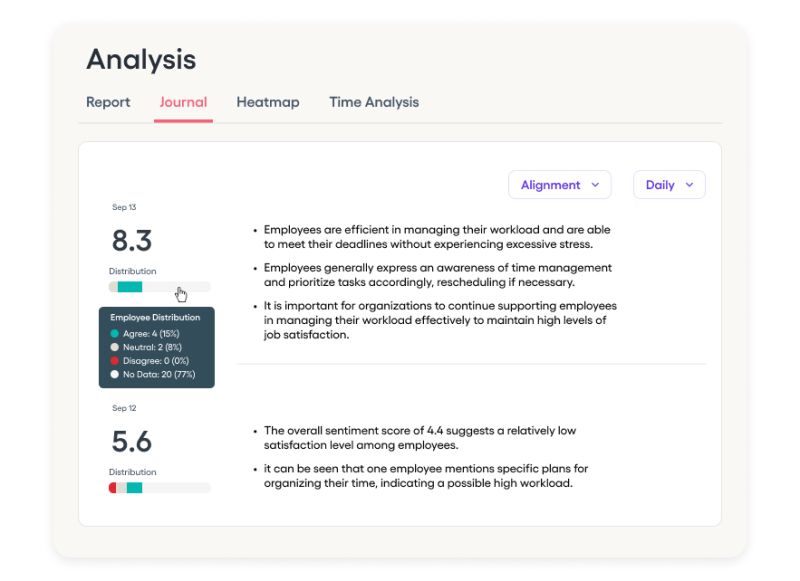Employee surveillance is on the rise. According to one poll, searches for staff-monitoring software rose by 75% in March 2020 compared with the 2019 monthly average — and demand remained strong in 2021 and 2022.
It’s a spike mostly attributable to the shift during the pandemic to hybrid work. A 2022 Microsoft survey found that 85% of leaders have trouble believing that their workers are being productive.
Startups developing and selling work-monitoring software have been a beneficiary of the trend, unsurprisingly. Just today, Erudit, which uses AI to keep track of workforce stats like turnover risk and burnout rate, raised $10 million in a Series A funding round led by Conexo Ventures, Athos Capital, Ignia Partners, True Blue Partners and Fondo Bolsa Social.
Like many workplace-surveillance platforms, Erudit connects to the apps a company already uses — like Slack, Microsoft Teams and Zoom — to attempt to get a pulse on the organization. Erudit runs the data it collects through a set of AI algorithms, which generates scores along metrics such as “alignment,” “autonomy,” “engagement” and “satisfaction.”
“Everyone understands that the best decisions are made by those with the best data,” Alejandro Agenjo, who co-founded Erudit with Ricardo Reyes, told TechCrunch in an email interview. “But companies today are partially blind because the people analytics industry relies on lagging indicators. Erudit offers the ability to understand what affects the productivity of employees in real-time without disrupting workflow — and without the biases generated by current data collection systems, such as surveys.”

Image Credits: Erudit
But this reporter worries about the potential for mistakes and misinterpretations, as well as other forms of bias.
Erudit claims to leverage AI models “trained by psychologists” to extract and classify the sentiment of chat messages sent between employees. A demo page on the company’s website shows the model detecting various trigger phrases, like “I’m so stressed,” “I can’t handle it anymore” and “I’m looking at other jobs.”
“With Erudit, companies can gain an understanding of which benefits have an impact or are necessary, why the sales team isn’t meeting their targets, which managers have engaged teams or the real-time impact of a CEO’s address,” Agenjo said. “And there’s no need to conduct a single survey.”
Now, Erudit says it takes steps to anonymize any chat data that it collects. But I find it hard to believe that employees wouldn’t take issue on principle with software that reads their private messages, anonymizing or no.
It’s not just me. A 2021 survey by ExpressVPN found that the majority (56%) of employees feel stress and anxiety about their employer surveilling their communications, with 43% saying that they see it as a violation of trust.
Erudit lets customers exclude individual employees, teams or departments from being monitored. But that decision’s at the discretion of the administrator.
Setting aside the privacy concerns for a moment, I wonder whether Erudit’s models take into account how people from different backgrounds and cultures express themselves through text. Many AI models don’t — and, as a result, discriminate. Several years ago, a team at Penn State found that posts on social media about people with disabilities could be flagged as more negative or toxic by commonly used public sentiment and toxicity detection models.
And what about momentary lapses in judgement? What if, in a bout of frustration, a co-worker fires off a heated DM to a colleague, then thinks better of it and deletes it moments afterward? It’s not clear whether Erudit would penalize missteps like that. I’ve asked the company for clarification.
In an email, Agenjo said this: “The DM wouldn’t appear, because we do the checkpoints on a daily basis, not as they arrive. Even in the integrations where we could process deleted messages, we still don’t, in order to respect the employee’s decision of not sharing that sentiment.”

Image Credits: Erudit
Even if Erudit’s technology works as advertised — and that’s a big “if” — employees might rightly fear how managers decide to act on the data the platform gives them. Will teams that Erudit finds to be insufficiently “engaged” or “aligned” be punished unjustly? What about managers whose teams — through no fault of their own — have consistently low levels of satisfaction? Who can say?
In an effort to stave off criticism, Erudit published a lengthy blog post justifying its platform’s design and functionality — essentially suggesting that Erudit is merely a tool and, as such, can be used for good or bad. I’m not sure I agree with that abdicating position, but interpret it how you will.
In any case, Erudit hasn’t had trouble securing customers, it says — “dozens” of businesses use its platform today. The company has 20 employees, and expects to expand its team in the months ahead, particularly in the areas of customer support, customer success and sales.
“Part of process optimization and unit economics enhancement involves extracting the utmost business intelligence from the data lakes to which every company already has access; this is a top priority for every C-level executive today,” Agenjo said. “I believe that Erudit is at the heart of all this — people, business intelligence and AI.”
